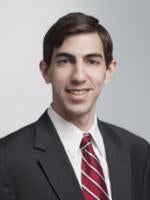Class certification in false advertising cases often fails due to problems with the class itself such as ascertainability. But what happens when a class action plaintiff admits she didn’t rely upon the purportedly deceptive claims in making her purchasing decision? A recent decision in California’s “food court” may provide an answer.
In Major v. Ocean Spray Cranberries, Inc. before a federal court in the Northern District of California , the plaintiff alleged that Ocean Spray labeled its 100% juice products deceptively. Specifically, plaintiff claimed that Ocean Spray’s 100% juice products boasted that they had “no sugar added,” but, contrary to the requirements of 21 C.F.R. § 101.60(c)(2) which California adopted, the labels of these juices omitted a disclaimer that they were not a “low calorie” or “calorie reduced” food. Plaintiff alleged that this omission rendered the 100% juice labels misleading under California’s Unfair Competition Law, False Advertising Law, and its Consumers Legal Remedies Act. She further alleged that the “no sugar added” claim was literally false because the 100% juice products allegedly included fruit juice concentrate – an ingredient banned from products labeled “no sugar added” by federal and state regulations.
Ocean Spray moved for partial summary judgment on these claims, while plaintiff attempted to certify a class with herself appointed as the lead plaintiff. Among other things, Ocean Spray highlighted plaintiff’s deposition testimony wherein she conceded that she did not believe Ocean Spray’s 100% juice products to be low calorie drinks. Ocean Spray also submitted evidence supporting plaintiff’s understanding that “no sugar added” meant that there was no sugar present aside from what naturally existed in the fruit matched the way Ocean Spray blended its 100% juice.
The Court granted Ocean Spray’s motion for partial summary judgment. In granting Ocean Spray’s motion, the Court held that the “no sugar added” claim had not even deceived the plaintiff, and therefore she had not relied upon the deception alleged in the complaint when purchasing the 100% juice products. Accordingly, plaintiff could not establish the necessary causation for a false advertising claim to advance. The Court also found the “no sugar added” claim was not literally false as plaintiff alleged because Ocean Spray used fruit juice from concentrate, not concentrated fruit juice, which contains sugar in excess of the amount that naturally exists in the fruit.
Notably, the Court applied its summary judgment ruling against the plaintiff’s class certification motion. In doing so, the Court held that an individual plaintiff’s lack of reliance on the “no sugar added claim” prevented the Court from certifying a class. It remains to be seen whether plaintiff will appeal this ruling and whether other courts will follow the food court’s lead in holding that admissions of non-reliance by the lead plaintiff can prevent a class from being certified. However, class plaintiffs that cannot substantiate causation and actual deception are liable to see their unripe claims pulped and put on ice.



 />i
/>i

